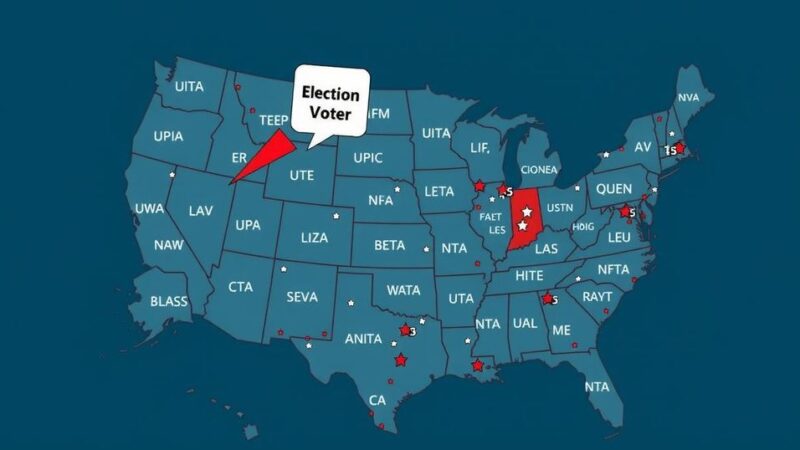President Biden expressed uncertainty about whether Israeli Prime Minister Netanyahu is deliberately delaying a ceasefire agreement in Gaza to influence the U.S. elections. He asserted his administration’s unwavering support for Israel while acknowledging growing frustrations with the Israeli leader. Meanwhile, congressional concerns about the impact of the conflict on Biden’s political future highlight the interconnectedness of foreign relations and domestic electoral dynamics.
President Joe Biden expressed uncertainty regarding whether Israeli Prime Minister Benjamin Netanyahu is delaying a ceasefire agreement in Gaza to sway the upcoming U.S. elections. During his initial White House press briefing upon taking office, he addressed concerns raised by some Democrats who suspect that Netanyahu may be prolonging the conflict to undermine the Democratic Party’s electoral chances. Biden stated, “Whether he’s trying to influence the election, I don’t know but I’m not counting on that.” He emphasized his administration’s strong support for Israel, asserting, “No administration has helped Israel more than I have. None, none, none,” while advising Netanyahu to bear this in mind. Recent comments from Democratic Senator Chris Murphy echo concerns about the implications of Israel’s actions on U.S. domestic politics, as the Israeli Prime Minister’s reluctance to agree to a ceasefire and a hostage release deal raises doubts among Biden’s supporters regarding his leadership. Polling indicates that the escalating conflict in the Middle East is negatively impacting voter sentiment towards Biden and his successor, Kamala Harris, particularly among Arab-American constituents. Biden has actively sought a diplomatic resolution between Israel and Hamas but has grown increasingly frustrated with Netanyahu’s inaction. Despite reports that a preliminary deal was nearing completion, Netanyahu has publicly stated that Hamas is not currently prepared to finalize an agreement. This divergent outlook on diplomacy is further complicated by speculation that Netanyahu perceives a ceasefire as politically detrimental to his coalition. The tensions extend to military actions, as Israel continues aerial operations in Gaza while Biden contemplates the repercussions for regional stability, including possible strikes on Iranian oil infrastructure. Overall, the trajectory of U.S.-Israel relations under Biden contrasts starkly with the rapport Netanyahu enjoyed with former President Donald Trump.
The backdrop of the commentary by President Biden revolves around the ongoing conflict in Gaza, a situation that has significant implications for both U.S. foreign policy and domestic electoral politics. Biden’s administration has been under pressure to foster a ceasefire between Israel and Hamas to demonstrate effective leadership and mitigate damage to the Democratic Party’s electoral appeal. As violence escalates in the Middle East, Biden’s approval ratings, particularly among Arab-American voters, have suffered, thereby exacerbating concerns regarding his political viability ahead of the elections. Furthermore, Biden’s relationship with Netanyahu has soured, as evidenced by mutual frustrations over the failure to reach a diplomatic consensus.
In conclusion, President Biden’s remarks highlight the complex interplay between U.S. foreign policy in the Middle East and domestic political considerations as the United States approaches a critical election period. While he remains committed to supporting Israel, Biden’s frustrations with Netanyahu reflect the challenges of navigating a diplomatic resolution amidst rising tensions. The outcome of this conflict and its implications for U.S. politics remain closely intertwined as public sentiment continues to evolve.
Original Source: www.bbc.com






